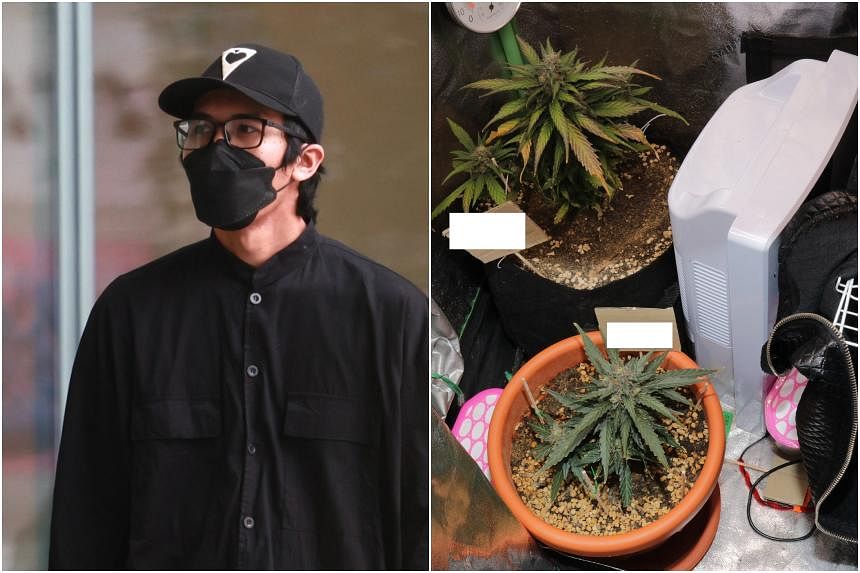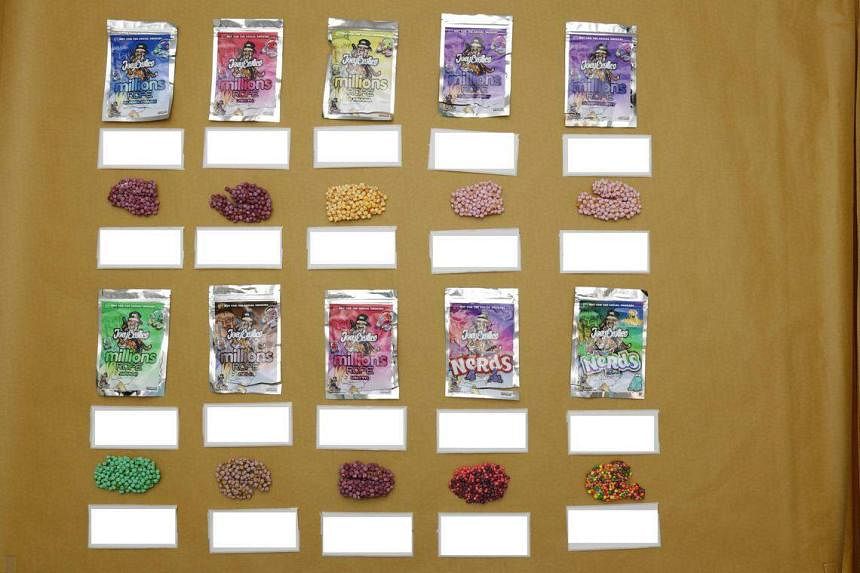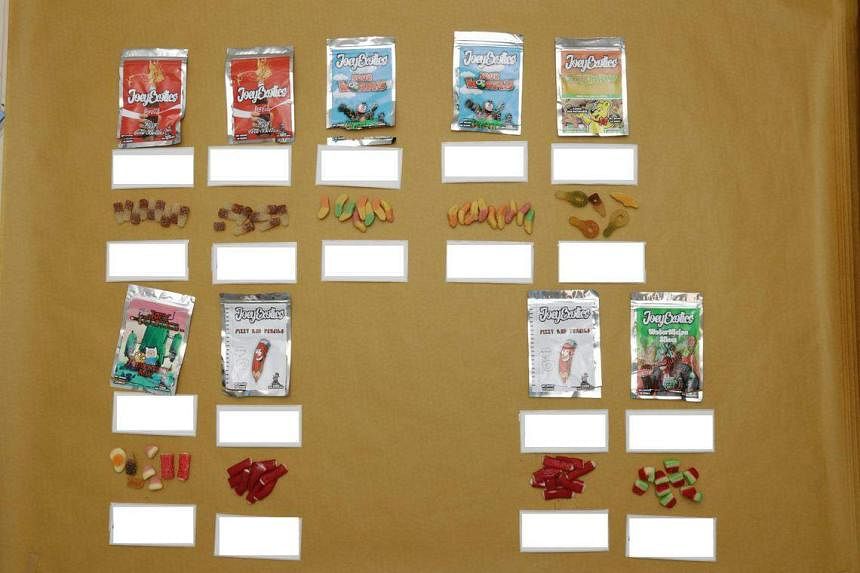- Joined
- Oct 30, 2014
- Messages
- 36,768
- Points
- 113

SINGAPORE – A Singaporean man has been sentenced to jail and caning for importing cannabis-laced gummies and candies in the Republic’s first conviction involving the importation of cannabis edibles.
Muhammad Dzulhilmi Salimi, 32, pleaded guilty on Dec 18 to one charge of importing a controlled drug, one charge of consuming drugs and another charge of possessing utensils intended for drug consumption.
He also grew three cannabis plants in his Housing Board flat in Bedok Reservoir Road, a charge that was taken into consideration for sentencing.
Dzulhilmi was sentenced to five years and four months’ jail, and given five strokes of the cane.
The court heard that Dzulhilmi bought the cannabis edibles by liaising with someone he knew only as “Nabil” via the mobile application Telegram.
Nabil lived in the United Kingdom and sold cannabis and sweets containing tetrahydrocannabinol, a substance found in cannabis.
Some time before Oct 19, 2022, Dzulhilmi ordered 20 packets of sweets from Nabil and paid him £200 (S$337) in Bitcoin through a friend. Dzulhilmi told Nabil to keep one packet for himself and to repack the remaining 19 packets of sweets so they look less suspicious, before shipping them to Singapore.
However, Nabil told him the packets looked fine and there was no need to repack them. He then shipped a parcel containing the 19 packets to the residence of the accused by registered mail.
Meanwhile, Dzulhilmi arranged to sell four packets of the sweets to his friends – three to “Ja”, and one to “Kasman” – for $180 in total.
The parcel was intercepted by an Immigration and Checkpoints Authority officer at a SingPost Centre in Eunos on Oct 19, 2022, before it could be delivered to Dzulhilmi’s residence.
The officer had spotted anomalies in the parcel’s X-ray images. After further screening, the parcel was seized and handed to the Central Narcotics Bureau (CNB).
Photos provided by CNB showed the sweet packets’ bright and colourful packaging, with some resembling well-known candy brands. The cannabis edibles came in various colours and looked like innocuous gummies and candies.


On the same day, CNB officers arrested Dzulhilmi at his residence. The officers found cannabis plants, loose cannabis and a drug utensil in his room.
Dzulhilmi admitted he had consumed cannabis that day. His subsequent urine test also contained traces of the drug.
Deputy Public Prosecutor Eugene Lau asked for five to six years’ imprisonment and five to six strokes of the cane for the drug importation offence.
The prosecutor said an uplift from the mandatory minimum sentence of five years’ jail was warranted, as Dzulhilmi did not purely import the drugs for his own consumption but had also arranged to sell them to his friends.
Defence lawyer Ramesh Tiwary said in mitigation this was Dzulhilmi’s first offence. The lawyer also noted that his client had cooperated fully during investigations and had pleaded guilty at the earliest opportunity.
In response to the case, a CNB spokesperson reminded the public that consuming or importing any controlled drug, including cannabis products or edibles, is illegal in Singapore.
Even when overseas, any Singapore citizen or permanent resident found to have consumed controlled drugs will be liable for a drug consumption offence, said the spokesperson.
In a previous reply to The Straits Times after Thailand legalised cannabis in June 2022, CNB said scientific evidence has shown that cannabis is addictive and harmful, citing world bodies like the International Narcotics Control Board and studies that highlight the adverse effects of long-term cannabis use, such as increased risk of developing psychotic symptoms or schizophrenia.
Addressing the rise of cannabis edibles, like candies and cakes, in other countries, CNB had said these are “irresponsibly marketed as harmless consumables”.
“The innocuous appearance of these products may entice unsuspecting youth to consume them, get intoxicated and risk overdosing,” it said.
A New York Times article in January 2023 noted that the accidental consumption of cannabis edibles among children under the age of six had surged in recent years in the United States, according to a published study.
The most frequent health outcome children experienced was central nervous system depression. Symptoms include drowsiness, lowered blood pressure and slurred speech, according to the National Institute on Drug Abuse.
https://www.straitstimes.com/singap...rst-conviction-for-importing-cannabis-edibles


